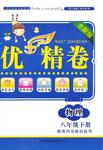题目内容
| |||||||||||||||||||||||||||||||||||||||||||||||||||||||||||||||||||||||||
解析:
(1) |
细节题。根据第一段最后一句“These places are always crowded with people, especially young boys.”。 |
(2) |
细节题。根据第一段“A lot of small shops along busy streets have been made into small game houses in order to get more money.”。 |
(3) |
细节题。根据第二段“In the computer game houses, people spend a lot of money competing”。 |
(4) |
主旨大意题。根据最后一段的最后三行:他们忘记了所有的课程,成绩落后,但有些学生偷同学的钱,变成了小偷。 |
(5) |
主旨大意题。由于人的赌博心理,慢慢地电脑游戏影响了人的生活,学习等。 |

 名题金卷系列答案
名题金卷系列答案 优加精卷系列答案
优加精卷系列答案
| |||||||||||||||||||||||||||||||||
| |||||||||||||||||||||||||||||||||
| |||||||||||||||||||||||||||||||||||||||||||||||||||||||||||||||||||||||||